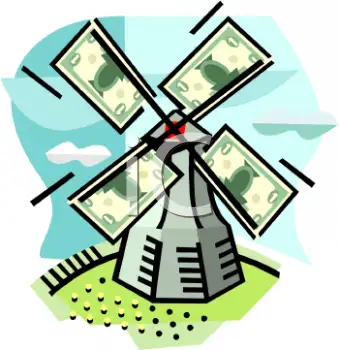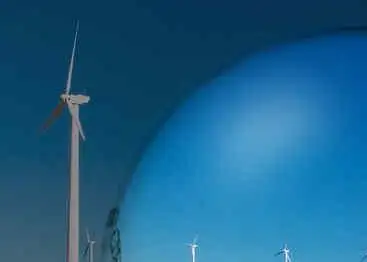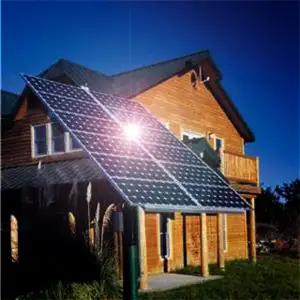Alternative Energy Grants - Sustainable Energy Development

Alternative energy grants fund renewable energy R&D, power systems upgrades, and grid modernization, supporting solar, wind, microgrids, battery storage, high-efficiency inverters, and electrification projects for utilities, manufacturers, and engineers, focused on decarbonization and smart grid.
What Are Alternative Energy Grants?
Grants that fund renewable power systems, grid upgrades, and storage for electrical engineering projects.
✅ Funds power electronics, inverters, and grid-integration R&D
✅ Supports microgrids, DERs, and smart grid reliability projects
✅ Covers feasibility studies, prototypes, and pilot deployments
Alternative energy grants - Wind, solar, geothermal and other alternative energy soures are the new "in" to replace forms of energy that harm the environment such as fossil fuels, so both Canadian and the U.S. governments are giving alternative energy grants (free conditional money) to individuals, businesses and local governments to promote the use and development of alternative energy sources. Here are three alternative energy grants currently offered by the U.S. government. For broader context on the field, the overview at what is alternative energy explains key terms and categories clearly.
Alternative Energy Grants - Energy Efficiency and Conservation Block Grant (EECBG) Program
These alternative energy grants help eligible entities in beginning their conservation and energy efficiency strategies. For those interested in applying for these alternative energy grants, they must have reduced their fossil fuel emissions, reduced total energy usage and improved energy efficiency within the company. Furthermore, those eligible must develop and implement an energy efficiency and conservation strategy with the assistance of a third-party technical consultant. Also, eligible entities must conduct regular residential and commercial building energy audits to monitor results and financial incentive programs (loan programs, rebate programs, waive permit fees) with the goal of improving energy efficiency must be in place. Other requirements are also required to be eligible for this alternative energy grant. To identify complementary rebates and policy tools, agencies can review alternative energy incentives relevant to their jurisdiction for alignment with EECBG goals.
Alternative Energy Grants - State Energy Program
Ultimately, provinces and states are expected to lower their overall fossil fuel carbon emissions so that the use of alternative energy sources can become more prevalent. Financial support, in whole or in part, may be provided for salaries, materials, and supplies, equipment, travel, publication costs, and services required for deployment of alternative energy activities and initiatives. The states energy program goes to competing states for funding to implement activities relating to a number of programmatic areas such as building codes and standards, alternative fuels, industrial efficiency, building efficiency, and alternative energy technologies. Many states layer alternative energy tax credits on top of SEP funds to catalyze private investment.
Alternative Energy Grants - Rural Energy for America Program (REAP)
The REAP program provides alternative energy grants to rural small businesses & agricultural producers for the purchase & installation of alternative energy systems in rural areas. Alternative energy grants are limited to 25 per cent of the project cost or $500,000 – whichever is less. Alternative energy grant applications of $20,000 or less are greatly favored in the competitive, selection process. Projects needing larger grants can improve their chances by simultaneously seeking a REAP guaranteed loan. For the loan seekers, the details are the same as the aforementioned alternative energy grant, but provides 60 to 85% per cent loan guarantees to commercial lenders financing such projects. Loans up to $25 million can be guaranteed. Combination grant and guaranteed loan assistance up to 75 per cent of total project cost; such “combo” proposals may improve a project’s access to grant assistance and speed approvals. Prospective applicants can benchmark typical capital and O&M figures using resources on alternative energy cost to prepare stronger pro formas.
Case studies of farm-scale solar, wind, and efficiency upgrades in the alternative energy projects library illustrate successful REAP financing structures.
Alternative Energy Grants - State Energy Special Projects
The State Energy Program aims to develop and deploy energy efficiency and alternative energy technologies and practices. The State Energy Program (SEP) makes it possible for states in the U.S. to design and carry out energy efficiency and alternative energy programs tailored to their State-specific needs, while contributing to national energy priorities. The State Energy Program enables the States to address both national energy initiatives and local energy priorities through two funding mechanisms: alterntive energy formula grants and Special Projects grants. States utilize these funds to design and implement energy projects tailored to meet community needs, economic conditions, individual energy situations, and climactic variations. SEP Special Projects funds are awarded on a competitive basis to States from each of the four end-use sectors (buildings, industrial, power technologies, and transportation) and the Federal Energy Management Program (FEMP) for cost-shared technology projects. Special Projects often accelerate alternative energy development by targeting pre-commercial demonstrations and regional testbeds.
For program designers seeking cross-sector approaches, curated alternative energy solutions can inform competitive proposals and stakeholder engagement plans.










